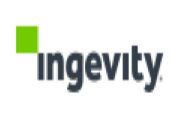Ingevity Corporation intends to challenge a jury verdict related to claims by BASF Corporation

Ingevity Corporation announced that it intends to challenge a jury verdict rendered on Sept. 15, 2021 in the U.S. District Court in Delaware related to claims by BASF Corporation, Florham Park, New Jersey, that Ingevity engaged in anticompetitive activities and interfered with an alleged prospective relationship between BASF and a customer.
The claims relate to Ingevity’s enforcement of its patent covering canister systems used in automotive gasoline vapor emissions control (Patent No. RE38,844) and the company’s entry into several supply agreements with customers of its fuel vapor canister honeycombs. The jury ordered Ingevity to pay antitrust damages of approximately $28 million, which will be automatically tripled under U.S. antitrust law to roughly $85 million. Ingevity believes in the strength of its intellectual property and the merits of its position and intends to pursue all legal relief available to challenge this outcome.
Ingevity’s ’844 patent – set to expire in March 2022 – relates to certain canister systems designed to achieve gasoline vapor emissions levels that comply with the most stringent U.S. Environmental Protection Agency Tier 3 and California LEV III regulations. The verdict relates to the company’s enforcement of its patent rights regarding fuel vapor canisters in the U.S. and Canada that use its honeycomb scrubber to reduce certain types of vehicle emissions, as well as to supply agreements with certain customers. The verdict is not related to the manufacture of Ingevity’s activated carbon.
The company does not anticipate an immediate impact to commercial sales and is not aware of a competing certified or tested honeycomb that could replace sales of Ingevity’s product immediately due to the multiyear automotive design cycle of original equipment manufacturers and Tier 1 suppliers.
The decision has no bearing on the company’s ’649 patent family obtained in the U.S., Europe and China to reduce emissions in low-purge engines, which Ingevity believes could apply to anywhere from 25% to 60% of future near-zero fuel system designs.
Subscribe to our newsletter & stay updated.